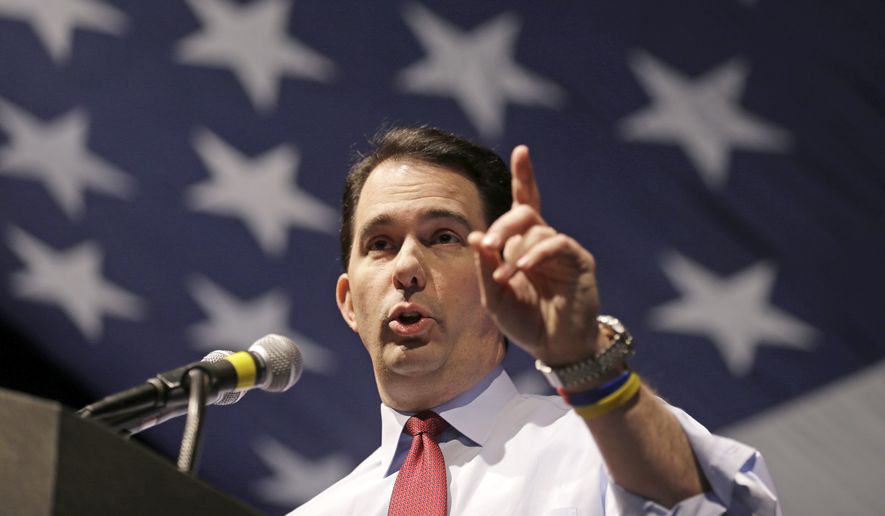More than 100 state and local officials faced recall elections in 2015 and a majority were ousted from their jobs, as unhappy voters vented their frustrations on issues ranging from charter schools to gun rights.
In all, there were more than 400 recall drives, with 108 actually going to voters and 65 officials being tossed from their jobs, according to a tally from Joshua Spivak, who writes the Recall Elections Blog.
Fifteen other officeholders resigned, while just 28 survived the recall vote, according to Mr. Spivak.
The 108 recalls were down from 126 in 2014. There were 107 in 2013, 168 in 2012, and 151 in 2011.
Recalls have become major political news in recent years after Californians voted in 2003 to kick Democratic Gov. Gray Davis out of office and replace him with actor Arnold Schwarzenegger. Then in 2012 Democrats and liberal groups, furious over Wisconsin Gov. Scott Walker’s successful push to rein in the bargaining rights of public sector labor unions, tried, but failed, to oust him.
None of this year’s recalls reached that level of national interest, but voters still did go after local lawmakers over hot-button issues.
SEE ALSO: California law allowing seizure of guns without notice begins Jan. 1
In Colorado, three Jefferson County school board members who had embraced conservative education reforms were successfully recalled. And a city councilwoman in Columbia, Missouri resigned in January before she could face a recall over a vote she took against a bill on marijuana decriminalization, among other issues.
Gun rights activists also threatened to recall several lawmakers in Oregon in the wake of votes on a measure to expand background checks for firearms purchases. Two Democratic lawmakers in Colorado were recalled in 2013 over their votes in favor of stricter gun laws.
Mr. Spivak said candidates and elected officials should be aware of the political land mines lurking beneath issues such as education reform and gun control, which are major hard-line litmus tests for many voters and activist groups.
“I think education is certainly one that they really have to be aware of,” he said. “I think the gun control and gun rights groups have really shown the recall [process] to be a very effective way of furthering their point of view, and they’ve done this for awhile.”
Mr. Spivak also said even threats of recalls have shaped the political discourse. In addition to Oregon, recall threats were directed at the mayor of Ferguson, Missouri, in the wake of the Aug. 2014 shooting death of Michael Brown, an 18-year-old black man, at the hands of a white police officer.
Mr. Spivak also pointed out that Mr. Walker, a one-time 2016 GOP presidential candidate, was boosted by his own successful recall election, when he beat back an effort spearheaded by pro-union groups. The governor made his ability to survive the recall drives a centerpiece of his brief presidential run.
SEE ALSO: N.H. Union Leader publisher: Trump will get beaten ‘soundly’ for GOP nomination
“The recall pushed him onto the national scene,” he said.
Recall provisions are not uniform across states and localities. That issue has arisen in the case of Chicago Mayor Rahm Emanuel, who is facing calls to step down over his handling of the city’s police department and a series of shootings involving officers. Chicago doesn’t have a recall provision, but a Democratic state lawmaker has introduced legislation that would allow voters to oust him midway through his term.
• David Sherfinski can be reached at dsherfinski@washingtontimes.com.




Please read our comment policy before commenting.